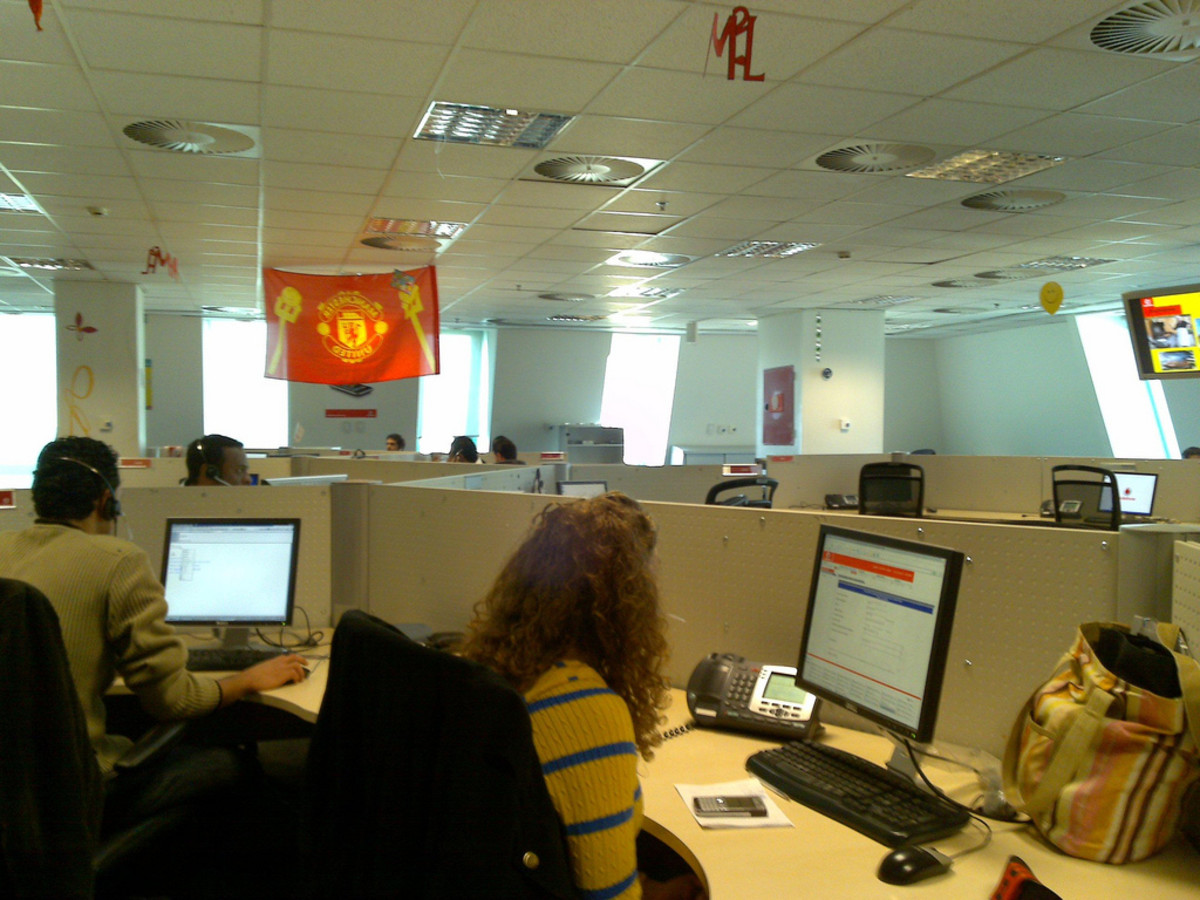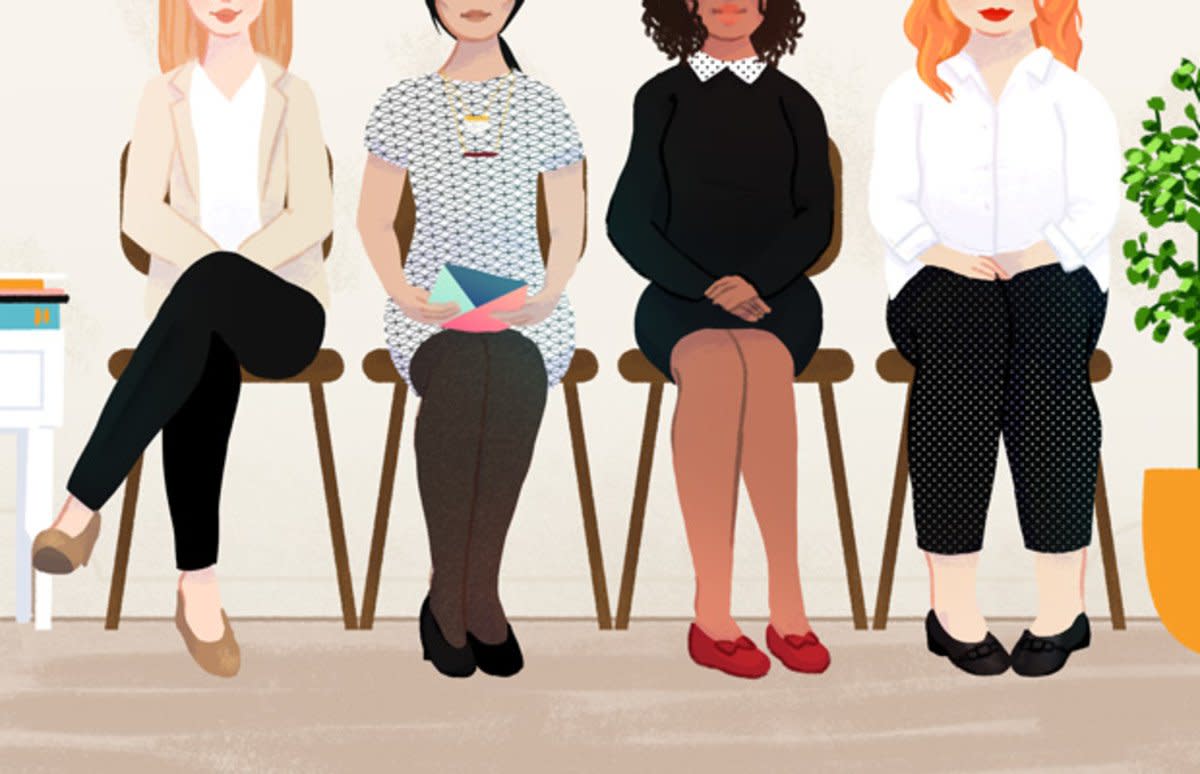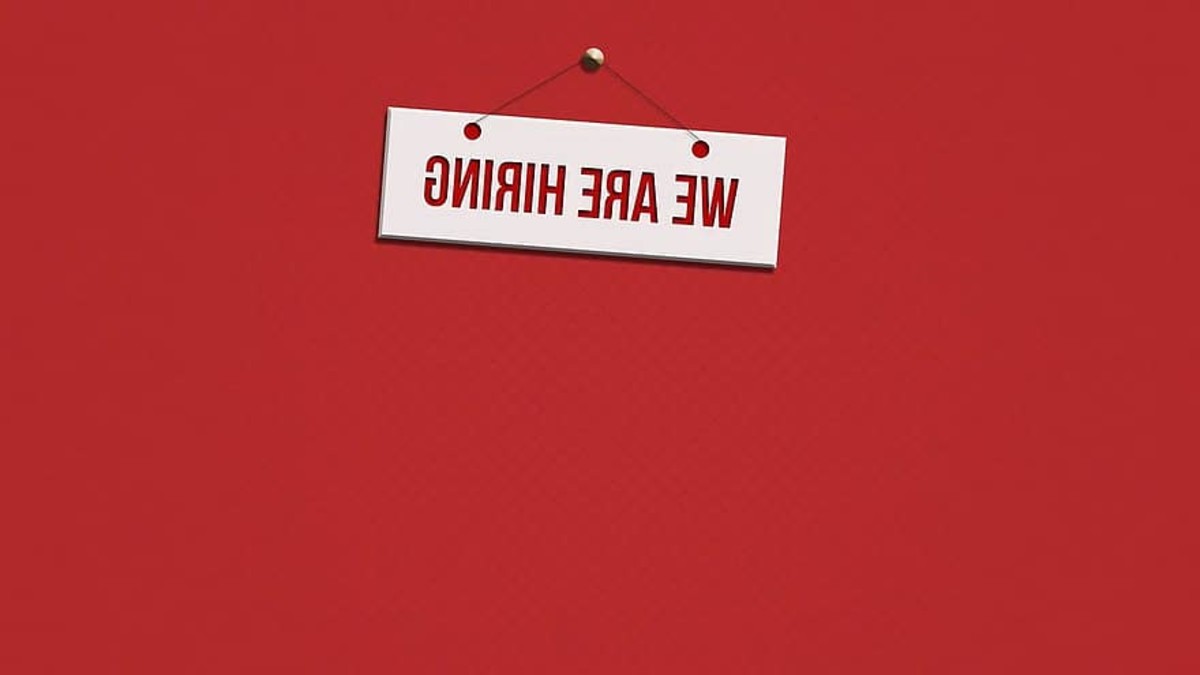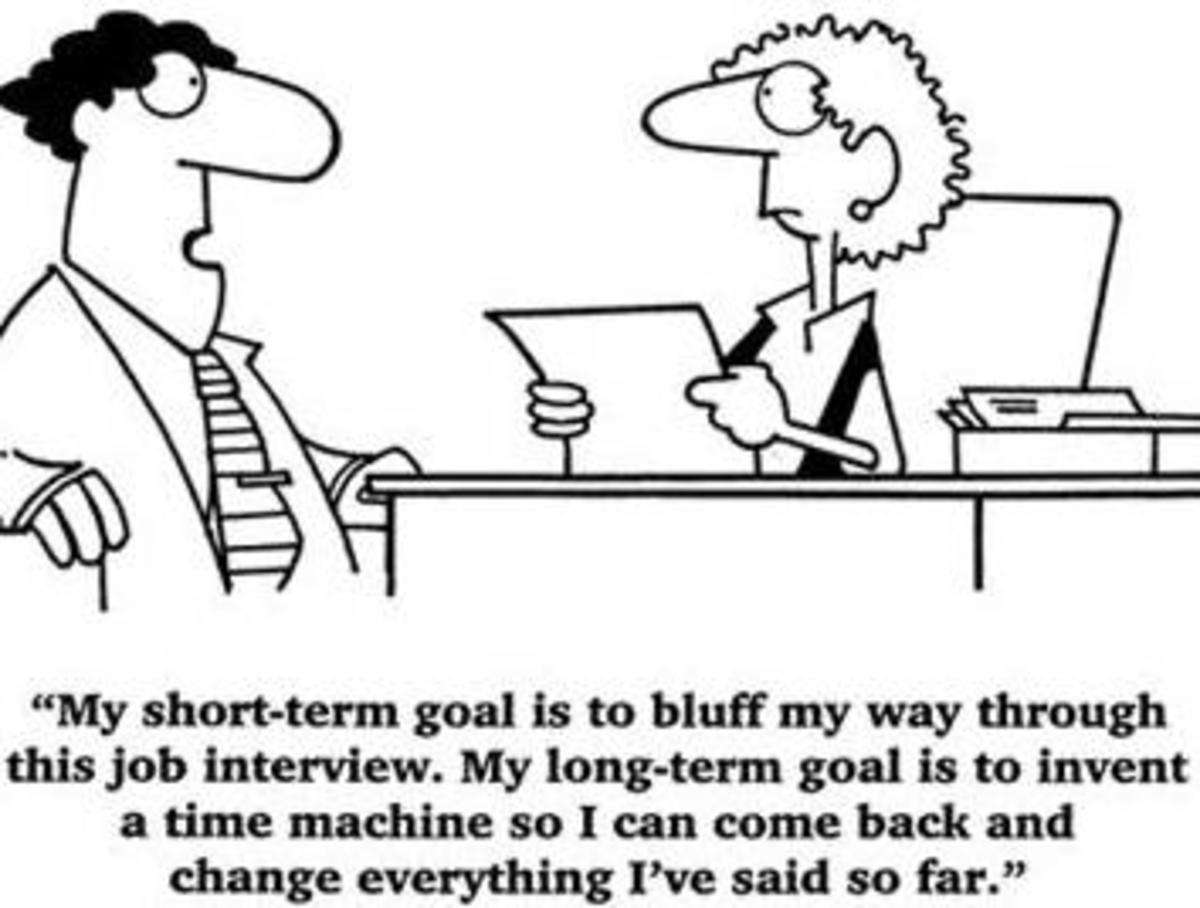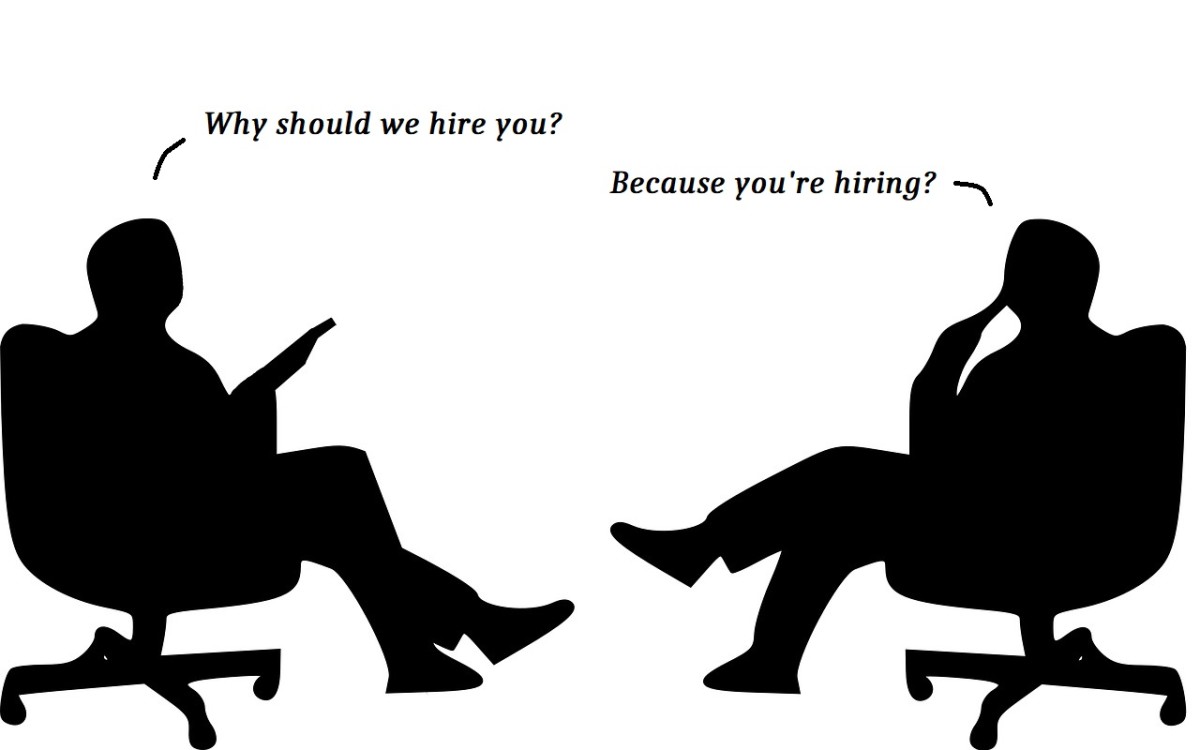- HubPages»
- Business and Employment»
- Employment & Jobs»
- Interviewing for a Job
How to Interview for a Job: Master Commonly Asked Interview Questions
So you’ve written an amazing cover letter and your resume stood out from the bunch, and now you’re facing the next step: the interview. How you interview for a job determines if you will be hired. It’s pretty straight forward, but even if you are the most qualified person for a position, interviews are all about impressions and someone less qualified than you could get the job. If you want to land the job, prepare by asking yourself these commonly asked interview questions. But questions aren’t the only part that matters. How you dress and how you behave also plays a role in your success, and it starts the moment you walk through those doors.
The Attire
If you want to land a job, regardless of the type of job, dress to impress! NEVER, under any circumstances, were jeans, tank tops, flip flops, etc. to an interview. Dressing down can give the impression you don’t care, regardless if this is true. Always wear button down shirts, pressed slacks and polished dress shoes. If you can afford it, pick up a nice suit or blazer. Even stores like Target carry them, so take a look. Once you get your outfit picked out, remember to iron it! Wrinkled clothes give the impression you just rolled out of bed and yanked that shirt out of a pile of dirty clothes. The same goes for your hair…don’t show up with “bed head.” Take the time to wash it and style it.
The Waiting Room
Always arrive at least fifteen minutes early to your interview. Generally, the person interviewing you will not be ready to see you, so you’ll have to wait in a lobby. Never text or talk on your phone; in fact, leave your phone in the car! You don’t want to risk it going off in the interview. When you’re waiting, always be polite, make eye contact with people walking by, and smile. Never forget to smile. Often times someone walking around is actually the person you’re about to meet! And that receptionist behind the desk, guess what? She’ll be asked what she thought of you after you leave, so be courteous and polite. The waiting game for an interview is actually a pre-screening process for some companies, so don’t be fooled.
I was once walking down the hall at my work and said good morning to a person walking past. I had no idea who this person was since I worked in a building that housed multiple companies, but this person ignored me and didn’t even give me the little hello-smile. I didn’t think much of it until I returned into my office to discover this same person in our waiting area…Guess what? He was there for an interview with me! And he ignored my hello! Ha! This was probably not the first impression he wanted to make—but that’s what it was and he definitely didn’t get the job. So always be polite because you have no idea who is who once you walk into a building.
The Interview
You’ve made it! You look sharp and you smiled in the waiting room, but now the hard part begins. Everything you say will be scrutinized so word choice is extremely important. Below are some commonly asked interview questions and how you should be answering them.
Tell me a little about yourself.
This is a standard first line from the interviewer because it’s an easy way to break the ice. Don’t go on a long tangent here—just a few sentences—where you grew up perhaps, where you went to school/what you studied, and how your education/interests/experiences fit in with your career objectives. Always tie in your career objectives and avoid bringing up anything that can portray you in a negative light. Sometimes people get a little too honest here and may mention how they like to drink and party every weekend or how they have a strained relationship with their parents, etc. Never reveal anything too personal since you don’t know your audience and how it will be received.
What do you know about our company?
Always do your homework. This is a common interview question to determine if you’ve really taken an interest in starting a career at X location or if this is just any old job. If you know nothing, you are in trouble. Do as much research as possible before your job interview. You should know basics—company name, when the business started, what the business does, etc.
If I asked your last employer what your strengths are, what would they say?
Even if your employer fired you, never say this. He asked what your strengths are, not why you got canned. Always find the positive in every situation. This is one of the most important questions, so make sure you shine. Try to provide examples with this question. If your old boss would say you are a leader, explain why. If they say you are dependable, explain how.
What are some areas you need to work on? (What is your weakness/flaws?)
This is one of the most commonly asked interview questions and it’s one of the easiest ways to lose out on a great job. Whatever you pick or claim as your weakness should be viewed as a potential strength as well—it’s a sticky situation. For example, an easy one is you’re a perfectionist and you can be too hard on yourself when you make a mistake. Hearing “perfectionist” is a plus since that means you have high standards of success and hearing you make mistakes makes you human—no one is perfect, right? This is also a great way to appear humble verses overly arrogant, which is a huge turn off. If your weakness can’t be viewed as a strength or at least as something in the middle, find something else. For example, never say “I’m always late” or “I’m bad with time management.” If you’re late, it reflects you value your own time more than your employer’s and if you’re bad with time management, it tells your potential employer you can’t stay on task, that you’ll need constant supervision, etc. I’ve heard both of these responses several times and I’ve never once selected a candidate for employment who answered in that way. The same goes for “I have no weaknesses.” Please, we all have weaknesses. If you claim to have none, you can come off as cocky or dishonest, which won’t help you land the job. Even if you think you're awesome, no one beats you, save your pride on this answer because it won’t get you anywhere.
Why did you leave your last employer? / Why are you looking to quit?
We all know why we start looking for new jobs…usually it means were unhappy and we want to tell our current bosses to shove it…BUT, this is one of those situations where honesty is not the best route to go. Keep in mind, if someone hires you, you’ll work with them for awhile and then you’ll eventually quit. When you leave, this employer does not want you bad mouthing them to other companies, so if you bad mouth someone else, you likely won’t get hired. Even if you hated your last employer, only smiles should show through in this answer. Never say anything negative about your past employer. Easy answers include: I am looking for a career change and I love X field (wherever you are applying) or I am looking for a company that can offer growth potential or I am looking for a company that can provide steady hours, etc.
What is your definition of success? / What does success mean to you?
I once had a guy tell me his definition of success was driving to work without road rage…yes, this was a REAL answer, so think before you speak! This answer clearly sent warning bells going off in my head since I don’t want to work with anyone who thinks no road rage = success. That answer only told me he had serious anger management problems, which is not a desirable trait. Even if road rage is your success, never say that. Keep your answers as positive as possible. Your definition of success or any similar question, should always be work related and positive, like: Success to me is when I don’t just complete my tasks assigned, but I finish additional work or Success to me is loving to go to work every day and enjoying the work I do, knowing I am giving 100% every day.
What makes you the most qualified or best suited for this position?
A mistake often made here is being too boisterous. Sure, an interview is about selling yourself, but if you come off as conceded, you likely won’t get the job. There is a fine line between confidence and cocky, so make sure you aren’t crossing over. Instead of jumping the gun and explaining why you’re the best, be thoughtful in your approach. I usually answer this question with, “That’s a hard question. Since I don’t know who else has applied for this position, I really don’t know if I am the best, but I know if you hired me, I would…” and explain here why your skills are ideal.
Do you have any questions for me?
This is another commonly asked interview question that you may be asked at the end of your interview, and you better have questions. Having questions shows you are interested, but keep the questions relative to the job tasks. Do NOT ask about pay, benefits, vacation, etc. Instead, ask questions like: How would a typical day look like for me if I was hired? Or, Of x, y and z job descriptions, which would I do the most? Or, what do you like most about working here?
At the end of the day, just remember to breath, smile when possible and ask for a business card before you leave. If you really like the job and you think it will be a good fit, send your interviewer a thank you email or card. It only takes seconds to do and it scores big points. Good luck out there!
If you are struggling to even get the interview, put your resume to the test:
- Why Does My Resume Keep Getting Passed Up?
Don't let your resume end up in the shredder. Check out these easy resume tips to determine if your resume needs a few tweaks.

